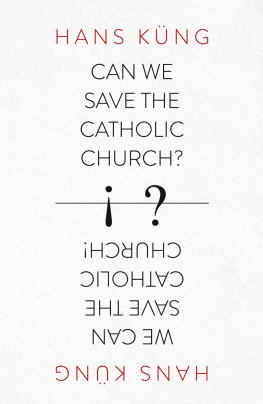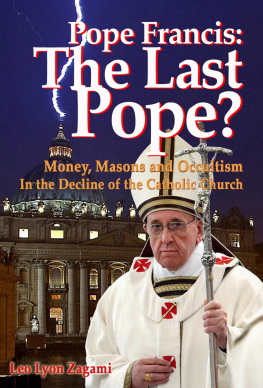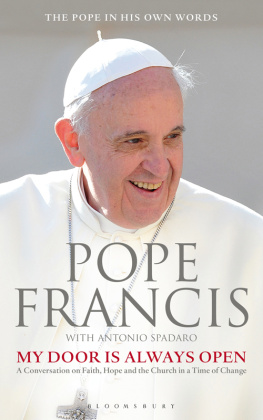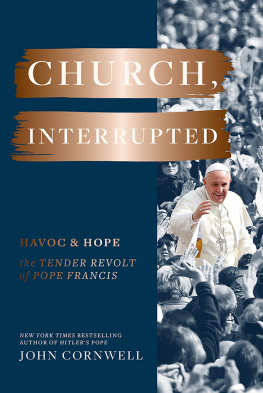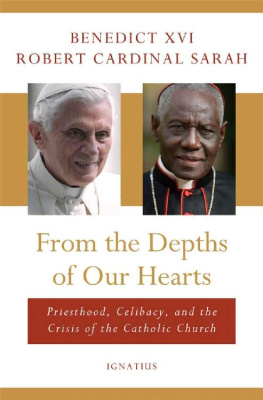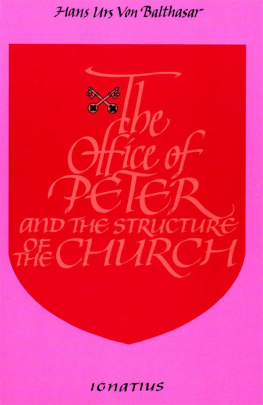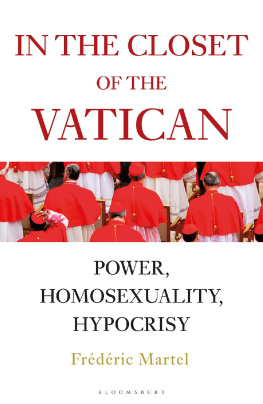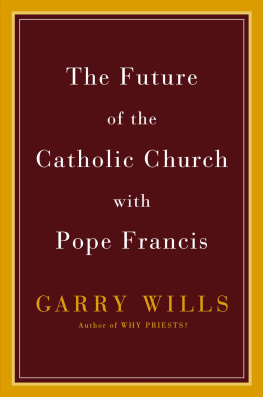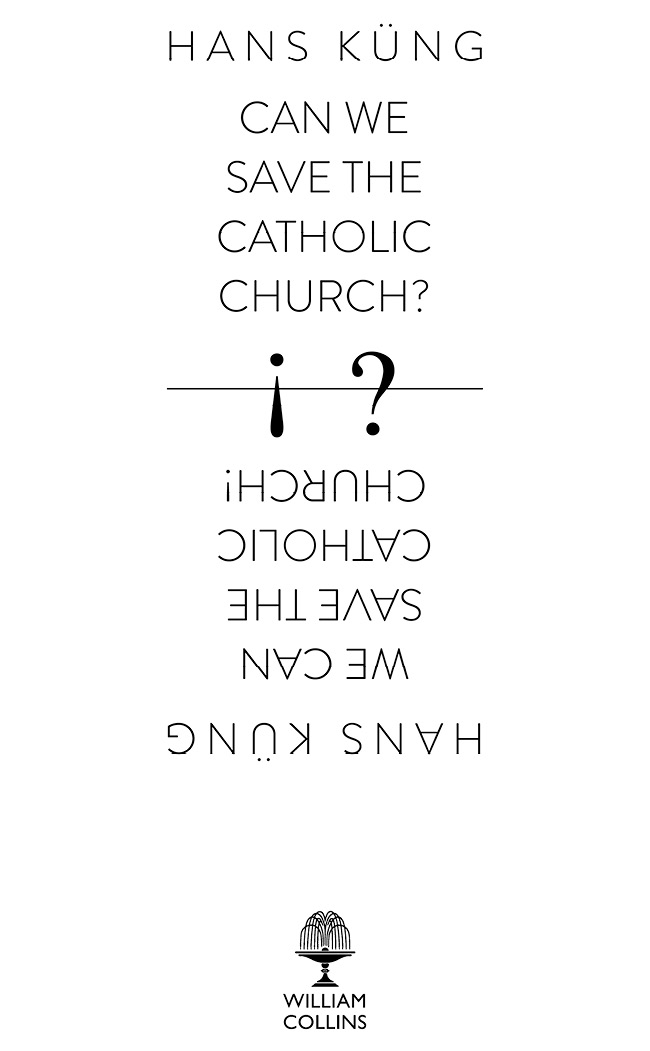Hans Kng was born into a Catholic family and grew up in the small Catholic Swiss town of Sursee. He attended secondary school in the Catholic city of Lucerne.
He spent a full seven years living in Rome at the elite Collegium Germanicum et Hungaricum, where he completed his philosophical and theological studies at the Pontifical University Gregoriana. After being ordained a priest, he celebrated his first Eucharist in St Peters Basilica and preached his first sermon to the Swiss Papal Guard.
He completed his doctorate on the Protestant theologian Karl Barth at the Institut Catholique in Paris, where he was awarded a PhD in theology. After two years pastoral ministry in Lucerne, in 1960 he became professor for Catholic theology at Tbingen University at the age of 32.
He attended the Second Vatican Council from 1962 to 1965 as a theological advisor appointed by John XXIII, and taught theology for two decades at the Catholic theological faculty in Tbingen, where he also founded and headed the Institute for Ecumenical Research of the University of Tbingen.
In 1979 he gained first-hand experience of the Inquisition under the new pope, John Paul II, quite a different pope from his namesake. At the order of the Congregation for the Doctrine of the Faith, he was stripped of his ecclesiastical licence to teach as a Catholic theologian; but thanks to the fairness of German law and the good will of the federal state of Baden-Wrttemberg and the University of Tbingen, he retained his chair of theology and his institute, which was officially separated from the Catholic theological faculty, although friendly relations continued to prevail.
For three more decades his devotion to his Church has remained unshaken, although this loyalty has never been uncritical. The recipient of numerous awards and prizes, he has remained to this day a professor of ecumenical theology, although now officially retired, and he has remained a Catholic priest in good standing, authorized to preach and to perform all priestly offices.
He has always supported the papacy as a pastoral Petrine office within the Catholic Church, but, taking the Gospel as his yardstick, he has also assiduously called for radical reform of the papacy and especially of the Roman System which has dominated the Catholic Church for over a millennium.
Despite all his often painful and bitter experiences with this merciless Roman System, his spiritual home remains the Catholic community of faith. He has written this book to aid its recovery and to help it survive within the ecumenical Christian community.
Impressed by the decision of Pope Francis in May 2013 to appoint a committee of eight cardinals most of them from outside the Roman Curia to make proposals for Vatican reform, Kng resolved to send copies of this book to all of the cardinals on the committee, as the required translations become available. On 13 May 2013, Kng wrote to the pope personally, expressing his joy over the popes bold decision and enclosing a copy of the Spanish edition of this book. Pope Francis responded in a personal, handwritten note thanking Kng for sending him the book and indicating his interest in reading it. He closed the letter with the unpretentious friendly greeting Fraternamente, Francisco.
This book has already been published in German, French, Italian, Spanish, Portuguese and Dutch. To my great joy the English edition is now available and it is being published at just the right moment! During recent months it has become clear that Pope Francis is striving for serious reform within the Catholic Church, as I request in the preface of this book. The pope has already made some important steps: first of all he appointed a group of eight cardinals from all continents with the mandate to initiate the reform of the Roman Curia.
Because of this development, I felt encouraged to send this book in Spanish to Pope Francis, and I was privileged to receive a personal, fraternal handwritten letter from him, in which he promises to read this book. I also sent the book, in their respective languages, to the eight cardinals.
I am deeply grateful to Collins for publishing this English edition; many of my most important books since the early 1970s have been published by Collins. My thanks go especially to Andrew Lyon, Editorial Director, Religious Publishing, who cared for this publication with tremendous competency and energy. The Sprachendienst Dr Herrlinger, a translation company in Tbingen, provided the basic translation. Dr Thomas Riplinger, a theologian and native English speaker, reworked and amended the text with extraordinary diligence in close collaboration with Andrew Lyon.
My thanks also go to Ben North for his creativity in inventing the ingenious dual title for the book, and the design team at Collins for the eye-catching cover. I am grateful to everybody for their excellent cooperation and I hope very much that this book will assist the English-speaking world in supporting Pope Franciss reforms by offering a precise historic and systematic analysis and viable, practical proposals for reform.
The Arab Spring has shaken a whole series of autocratic regimes. With the resignation of Pope Benedict XVI and the election of Pope Francis, might something like this be possible in the Catholic Church as well a Vatican Spring?
Of course, the system of the Roman Catholic Church is quite different from those prevailing in Tunisia and Egypt, to say nothing of the absolute monarchies like Saudi Arabia. In all these countries, the reforms that have taken place until now are often no more than minor concessions, and even these are often threatened by those who oppose any progressive reforms in the name of tradition. In Saudi Arabia, most of the traditions, in fact, are only two centuries old; the Catholic Church, by contrast, claims to rest on traditions that go back twenty centuries to Jesus Christ himself.
Is this claim true? In reality, throughout its first millennium, the Church got along quite well without the monarchistabsolutist papacy that we now take for granted. It was only in the eleventh century that a revolution from above, started by Pope Gregory VII and known as the Gregorian Reform, gave us the three outstanding features that mark the Roman System to this day:
a centralistabsolutist papacy;
clericalist juridicism; and,
obligatory celibacy for the clergy.
Efforts to reform this system by the reforming councils in the fifteenth century, by the Protestant and Catholic reformers of the sixteenth century, by the supporters of the Enlightenment and the French Revolution in the seventeenth and eighteenth centuries and, most recently, by the champions of a progressive-liberal theology in the nineteenth and twentieth centuries, managed to achieve only partial success. Even the Second Vatican Council, from 1962 to 1965, while addressing many concerns of the reformers and modern critics, was effectively thwarted by the power of the papal Curia and managed to implement only a few of the demanded changes. To this day the Curia in its current form a creature of the eleventh century is the chief obstacle to any thorough-going reform of the Catholic Church, to any honest ecumenical reconciliation with the other Christian Churches and the world religions, and to any critical, constructive coming-to-terms with the modern world. To make things worse, supported by the Curia, under the previous two popes, there has been a fatal return to old absolutist attitudes and practices.

